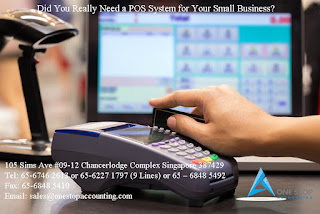Did You Know About the Integrating POS & Accounting Software Systems
Did you know that every POS accounting Software system will have a different level of integration to accounting, ecommerce, rental, shop management and many other software modules? And the level of integration can affect your business productivity?
When discussing POS accounting software, you might not realize that there's a difference between the terms "integrated" and "interfaced". You'll hear these terms used interchangeably but there's a subtle (yet significant) difference between "integrated" and "interfaced" products.
For example, some POS accounting software systems interface (or link) to another accounting system like some POS systems will have fully integrated accounting built into the software. So what's the difference?
Interface: A point at which independent systems or diverse groups interact.
Integrated: To make into a whole by bringing all parts together; unify.
In the Pos Accounting software world, integrated modules use the same data files and information is updated in real-time. The data is consistent across all modules, offering maximum integrity - so you save time and avoid double-entry.
Interfaced modules use POS accounting software protocols to translate and transfer data between them. Software Companies usually write interfaces so they can communicate with third party programs. The interface allows you to quickly send information to the third party program so you don't have to re-key the information. The drawback is that the interface needs to be triggered manually and it doesn't happen in real-time.
So what about your POS accounting software? Should they be interfaced (linked)? Or should they be integrated ?
Most POS accounting software systems in today's market have point of sale, inventory, customers, purchasing, and accounts receivables built-in and tightly integrated into the POS software. All of these modules are tightly integrated for a good reason. In fact, it's critical for all of them to seamlessly share and update information.
For example, when you create an invoice you're using the "point of sale" module. When you complete an invoice, the point of sale module instantly updates your inventory quantities in the inventory database. The point of sale module also updates the customer history, accounts receivables, and sales history databases.
For example, some POS accounting systems will link to other accounting software packages. Some POS systems will offer built-in accounting. Some POS systems won't offer anything. And of course, every POS Company will tell you that their way works the best.




Comments
Post a Comment